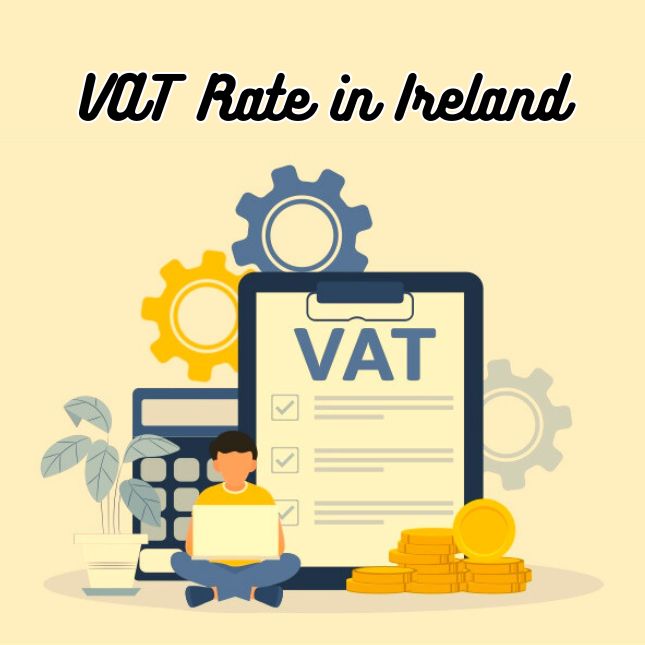The accountant’s role in forming the country’s economy is often underestimated. Ireland, a nation renowned for its active economy and strong financial sector. Chartered accountants Ireland play a pivotal role in driving the growth and improvement of Gross Domestic Product(GDP). Their expertise in financial reporting, business strategy, tax planning positions them as key players in Ireland’s economic development.This article explores how accountants contribute to the Irish economy and outlines the major component of country GDP.
What is GDP?
GDP is abbreviated as Gross domestic Product and it refers to the total monetary worth of all goods and services generated in a country, over a given period of time(quarterly and yearly).It is the key component of determining the country’s economic health.
A rising GDP shows economic expansion, increasing corporate activity, high income levels, whereas a falling GDP suggests economic stagnation or recession.
What are the main Components of Country GDP?
For better understanding how accountants influence the GDP growth,it is essential to explore what are the main components that formed the GDP of Ireland
Business investment
Business investment is the capital expenditures made by companies to expand operations. These include purchasing equipment, or developing new products. Accountants aid business in optimising investment decisions by analyzing financial data, predicting the future performance and giving insights into cost management. Their calculated advice for companies ensures that companies allocate resources efficiently,leading to increased productivity and economic growth.
Import and export
Ireland’s economy relies on international trade. The role of accountants here is very important in managing foreign exchange risks, compliance with international trade regulations and preparation of financial reports. All these effectively reflect cross-border transactions by smoothly running the import and export activities.Accountants contribute to the balance of trade which is a critical factor in GDP calculation.
Government Spending
Government spending includes expenses on infrastructure, public services,and social welfare programs. Accountants working in the public sector are involved in helping manage the budget. Moreover, they will also monitor expenditures and make sure that tax money is spent efficiently. Their financial expertise helps in minimizing wastage and optimizing the impact of government spending on the economy.
Personal expenditure Consumption
Personal consumption expenditure refers to household spending on products and services. Accountants in the retail and service industries assist organizations in understanding consumer spending habits, managing financial operations, and developing customer-acquisition strategies. Accountants indirectly contribute to an increase in consumer spending, which boosts GDP, by assisting firms in increasing sales and profits.
The Role of Accountants in Driving the Growth and Improvement of Ireland’s GDP
Tax Planning and Compliance
One of the main responsibilities of accountants is tax paying and compliance. While minimizing deductions and credits accountants help in understanding the complex tax regulations. They also make sure that companies pay the correct amount of tax. Effective tax planning increases disposable income for business and consumers, improving economic growth
Financial Reporting and Transparency
Investors, stakeholders, and government agencies rely on accurate financial reporting to make educated decisions. Chartered accountants in Ireland verify that financial statements meet international accounting standards. Transparent financial reporting increases investor trust and promotes foreign investment, increasing Ireland’s gross domestic products.
Financial Management and Business Strategy
Financial management services such as budgeting, forecasting and cash flow management are provided by accountants. Their deep understanding helps businesses make data-driven decisions, adapt to market changes and remain competitive. Strong financial management helps businesses achieve stability and growth. That ultimately impacts the overall economy.
Compliance and risk Management
Chartered accountants Ireland are critical to risk management and compliance in today’s highly regulated financial sector. They assist firms in identifying potential financial risks, developing measures to reduce them, and verifying regulatory compliance. Effective risk management protects firms from financial losses and promotes economic stability.
Support for SMEs and Startups
Medium sized enterprises(SMEs) and small businesses are the backbone of Ireland’s economy.Chartered accountants Ireland provide these businesses with favourable financial services,including bookkeeping, tax planning and financial advisory. By supporting SMEs and startups in achieving financial stability and growth, accountants drive job creation and economic development.
Conclsuion
Knowing the accountant’s role in the economic growth of Ireland is very important. One can clearly see how important they are in bringing economic growth by improving the GDP. From financial reporting to tax planning and supporting small business all done by accountants. So, in bringing wealth to the country one cannot ignore the existence of accountants.
Frequently Asked Questions (FAQs)
For business growth why financial management is important?
Financial management, if done effectively, helps businesses make informed decisions, manage cash flow, and adapt to market changes. Strong financial management contributes to business stability and economic growth in Ireland.
How do accountants support Ireland’s economic growth in 2025 and beyond?
Accountants play a critical role in tax planning, compliance and financial advisory for business. As the country’s economy grows their expertise will be important in navigating regulatory changes and fostering economic growth.
What are key factors driving Ireland gross domestic growth today?
Key factors driving Ireland gross domestic growth include business investment, international trade, government spending and personal consumption expenditures.Accountants play a very important role by providing the main financial services and decisions that prove helpful.
How does financial reporting impact Ireland GDP?
With accurate financial reporting transparency and investors trust can be built. This can attract both domestic and foreign investors’ confidence in business, which positively impact Ireland’s economy.
What is the role of chartered accountants in Ireland’s economic development?
Chartered accountants in Ireland play a crucial role in financial reporting, tax planning, and business strategy. Their expertise helps businesses optimize financial operations, which contributes to Ireland’s economic development and GDP growth.
What is the role of chartered accountants in Ireland’s economic development?
Accountants have a very helpful role in the economic development of a country. They can do tax planning, and develop business strategies . Their expertise helps in business growth optimizing financial operations which contribute to development of GDP.











